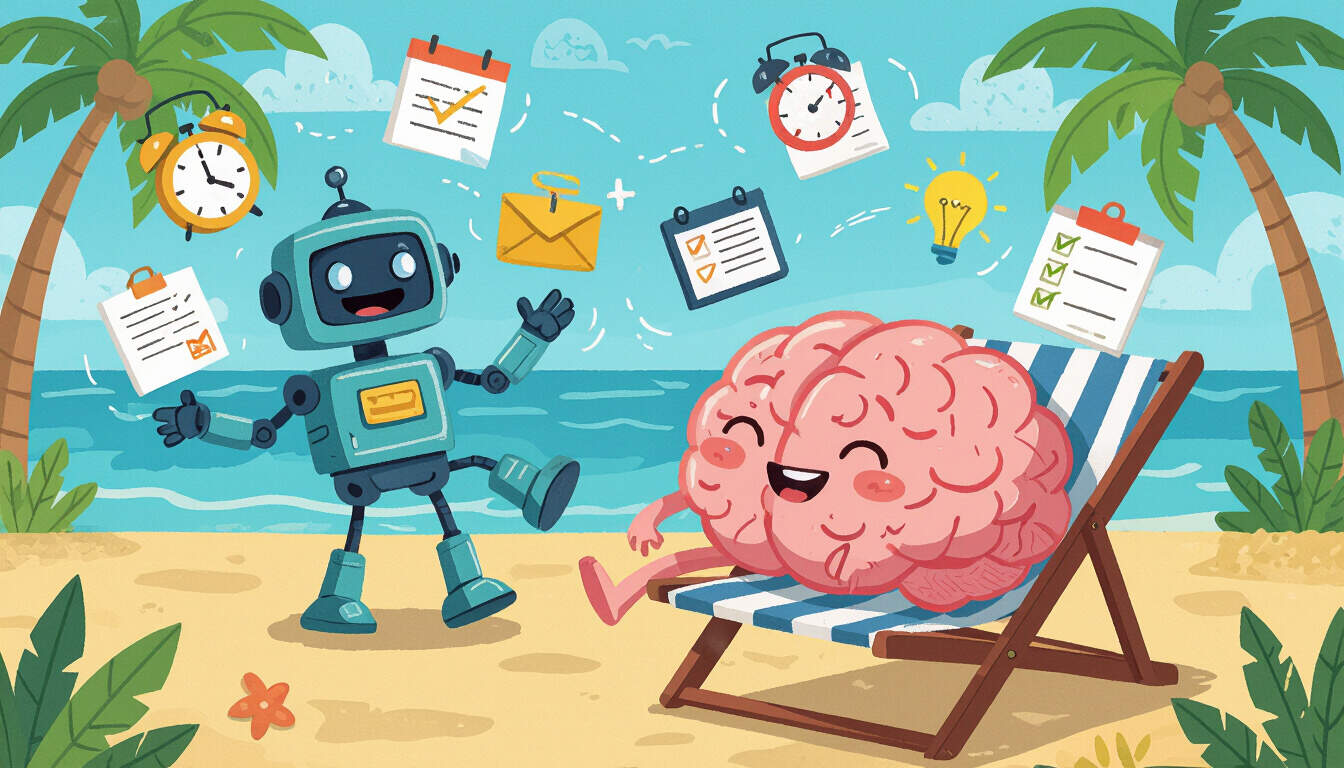AI Assistants: Easing Cognitive Load in Daily Routines
 by Marlene Keeling
by Marlene Keeling
AI assistants offer simple ways to handle everyday tasks, helping to reduce mental overload and boost productivity. This article explores practical tips for students and professionals to use these tools effectively, making life more manageable and focused.

In our busy schedules, managing multiple tasks can often lead to feeling overwhelmed. Cognitive load refers to the amount of mental effort used in working memory. AI assistants provide an effective way to handle this by taking over routine activities. For instance, AI assistants can manage schedules and reminders, freeing up space in your mind.
One key benefit of using AI assistants is their ability to organize information. They can sort emails, prioritize messages, and even suggest responses. This helps in reducing the mental effort required for communication. By delegating these tasks, individuals can focus on more important activities without the constant worry of forgetting details.
For students, cognitive load during study sessions can be a challenge. AI assistants like voice-activated tools can summarize notes or answer quick questions. This allows for better retention of information by breaking down complex topics into simpler parts. Using these tools during homework or exam preparation makes learning more efficient.
Professionals often deal with high levels of mental demands at work. AI assistants can assist in project management by tracking deadlines and coordinating team updates. For example, they can analyze data and provide insights, which saves time on manual reviews. This shift lets workers concentrate on creative tasks rather than administrative ones.
Practical Tips for Everyday Use
To get started with AI assistants, begin by identifying areas where you feel most overloaded. Create a list of daily routines that could be automated. For instance:
- Set up voice commands for shopping lists to avoid manual writing.
- Use apps that integrate with calendars to send automatic reminders.
- Employ speech-to-text features for note-taking during meetings.
Another tip is to customize settings for personal needs. AI assistants can learn from your habits and offer tailored suggestions over time. This personalization reduces the initial effort needed to adapt to new tools. As a result, they become seamless parts of your routine.
In family life, AI assistants can help with household management. They might control smart devices or monitor budgets, easing the mental burden of home duties. Parents can use them to set family schedules, ensuring everyone stays on track without constant reminders.
The Role in Decision-Making
When facing choices, daily life decisions can add to cognitive load. AI assistants provide options based on past data, helping to simplify choices. For example, they can recommend meal plans from available ingredients, reducing the time spent deciding what to eat.
For health and fitness, these tools track activity and suggest routines. This support encourages better habits without overwhelming users with too many details. Over time, this leads to improved well-being and less mental fatigue.
Overcoming Challenges
While AI assistants are helpful, it's important to address potential issues like over-reliance. Balance their use with personal involvement to maintain skills. Start small by integrating them into one area of life before expanding. This approach ensures they enhance rather than replace human effort.
In conclusion, incorporating AI assistants into daily routines offers a straightforward path to reducing cognitive load. By following these tips, students and professionals can achieve greater efficiency and focus. The key is consistent use, allowing these tools to support a more balanced life.
